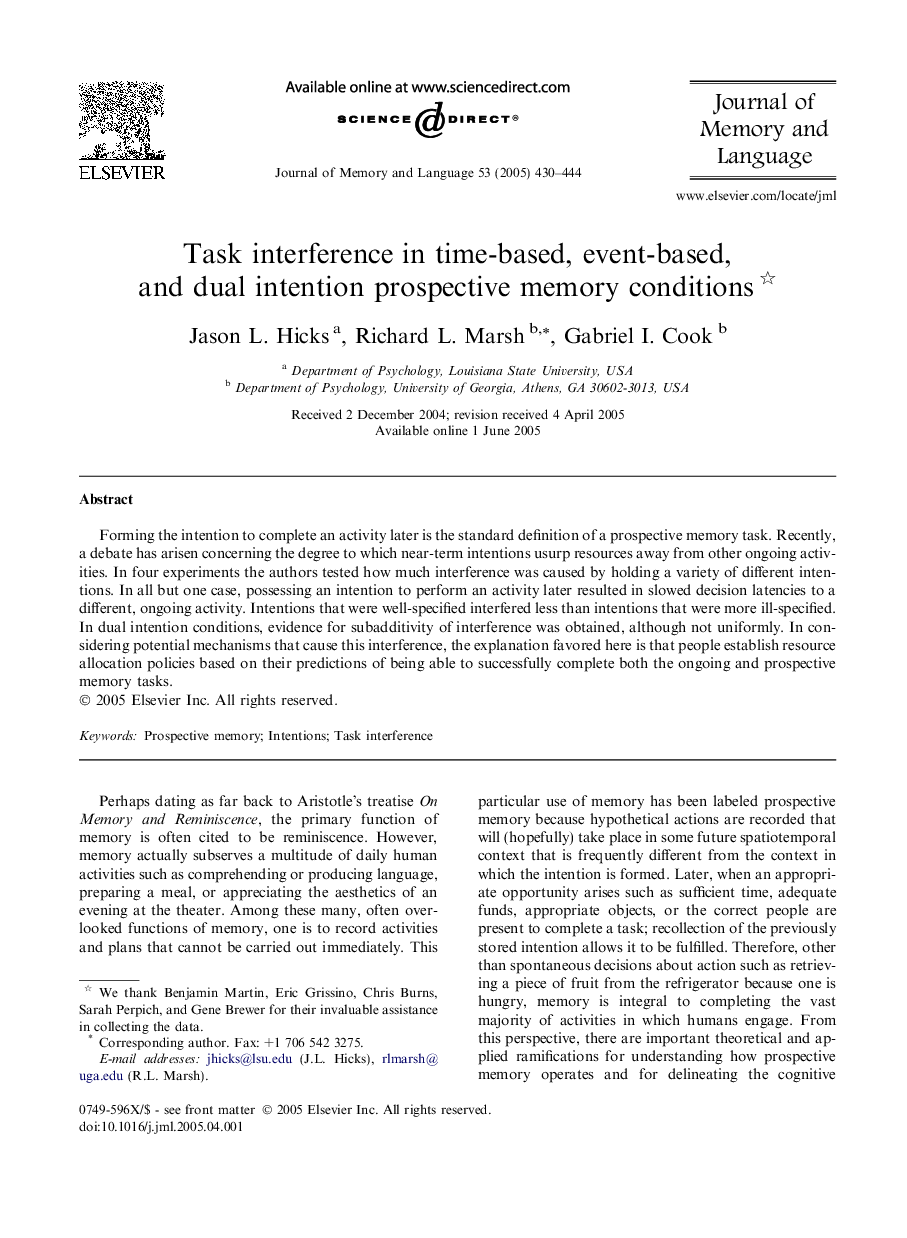| Article ID | Journal | Published Year | Pages | File Type |
|---|---|---|---|---|
| 10459811 | Journal of Memory and Language | 2005 | 15 Pages |
Abstract
Forming the intention to complete an activity later is the standard definition of a prospective memory task. Recently, a debate has arisen concerning the degree to which near-term intentions usurp resources away from other ongoing activities. In four experiments the authors tested how much interference was caused by holding a variety of different intentions. In all but one case, possessing an intention to perform an activity later resulted in slowed decision latencies to a different, ongoing activity. Intentions that were well-specified interfered less than intentions that were more ill-specified. In dual intention conditions, evidence for subadditivity of interference was obtained, although not uniformly. In considering potential mechanisms that cause this interference, the explanation favored here is that people establish resource allocation policies based on their predictions of being able to successfully complete both the ongoing and prospective memory tasks.
Keywords
Related Topics
Life Sciences
Neuroscience
Cognitive Neuroscience
Authors
Jason L. Hicks, Richard L. Marsh, Gabriel I. Cook,
